Showa 20.5 Type 14 Photos
I bought this gun from a gentleman
in
It is a Showa 20.5 (May, 1945) product of the Nagoya Arsenal Toriimatsu factory, which was the single largest producer of Type 14 pistols, and the only one still making Type 14s at war’s end. Its most distinctive feature is the use of so-called “slab” grips, i.e. grips with no horizontal grooves. These were eliminated in November, 1944 as a production expedient. The gun is all matching including the magazine.

The left side is also very nice.
Although I don’t think this gun was ever used, unfortunately the tip of the
firing pin was broken off. This was often done by over-zealous officers who had
been instructed to de-activate all ordnance before allowing it to be taken home
as souvenirs. The rule was meant for hand grenades and the like, but it
resulted in many brand new guns seized from arsenals and depots having broken
firing pins. The pin is broken off well back into the thick part so it seems
unlikely to have happened by accident.
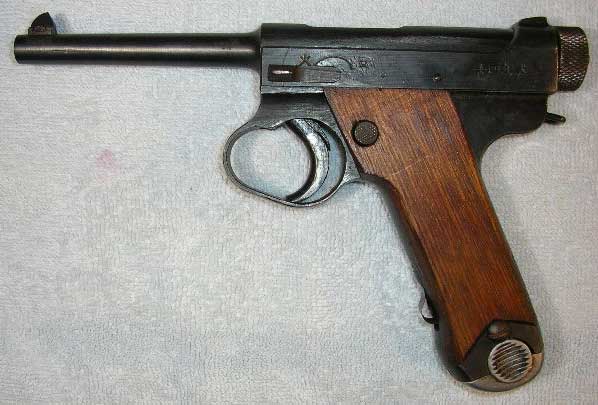
The serial number is preceded by the
Nagoya Arsenal symbol on the far left and then the katakana phonetic symbol ro in a circle (it looks like a square
in a circle). This mark indicates the gun is from the Second Series (a series
was a run of 99,999 serial numbers). Note the somewhat uneven placement of the
digits, the lack of polishing and the missing chunk of metal at the botttom of
the frame ridge (below the second 7).
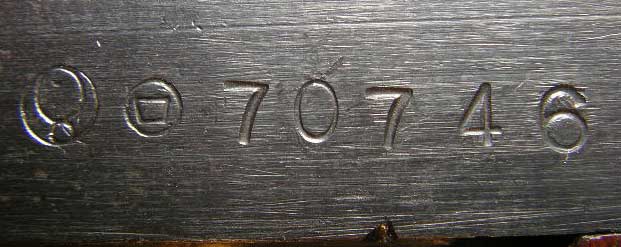
Here is the date, Showa 20.5. This translates
to May, 1945. Regular production and reasonable quality continued until June.
July and August, 1945 guns are mostly put together from leftover parts and are
generally very crude. Ironically, that makes them especially sought-after by
collectors. The character in the lower right is a final inspection mark. It is na, the first
character in
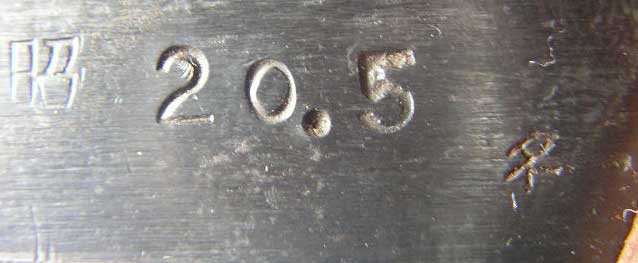
Here you can see that the wood of
the grip is jammed up against the trigger guard. If the gun had been
disassembled without extreme care, this area would have been shaved off by the
downward movement of the trigger guard.
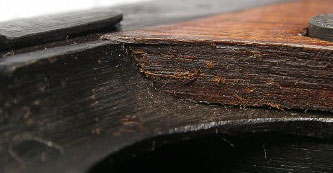
Although the gun’s condition is
great, the quality of the external finish shows many typical signs of late war
decline in attention to cosmetic matters. The rear of the grip strap, for
example, has an atrociously bad pair of long gouges that were never machined
smooth.
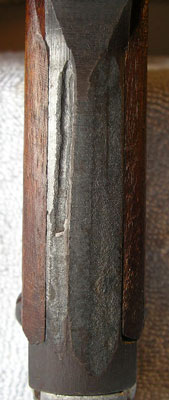
There are also a number of dings on
the left side near the “safe” kanji marking for the safety lever. It almost
looks like the side of the gun was used as a hammer. You can also see here the
lack of attention to polishing the surface. Note that the line scribed by the
arc of the safety lever’s travel is very light, indicating it has seldom been
moved.
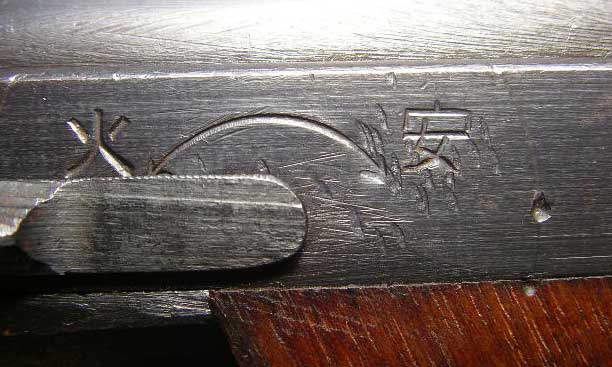
Here’s a shot of the right rear of the barrel
showing lack of polishing.
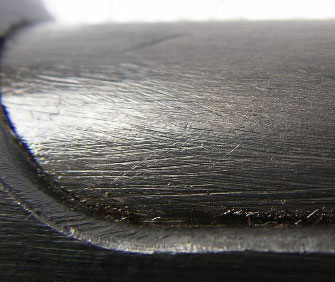
Rough machining on the bottom of the
trigger guard.
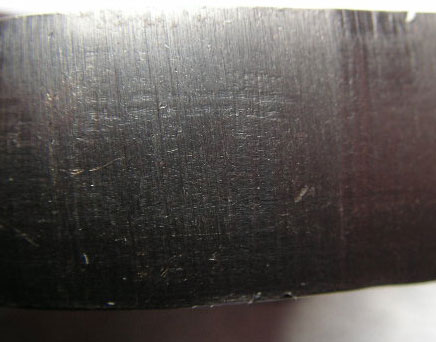
When examining late production Type
14s, it is important to keep in mind two things:
(1) a gun can be in factory-new
condition but show a lot of poor exterior workmanship, which is not the same as
wear or damage; and
(2) the exterior finish is not necessarily
an indication of poor functionality. Internal tolerances were well maintained
until June, 1945 even though the guns often looked rough.
Click here to go back to the Type 14 Photo
Gallery: Type 14 Photo Gallery
Click here to go back to the main page: Teri’s Japanese Handgun Website
Last updated: October 28, 2004. All contents
are copyright Teri unless otherwise specified and may not be used elsewhere in
any form without prior permission.